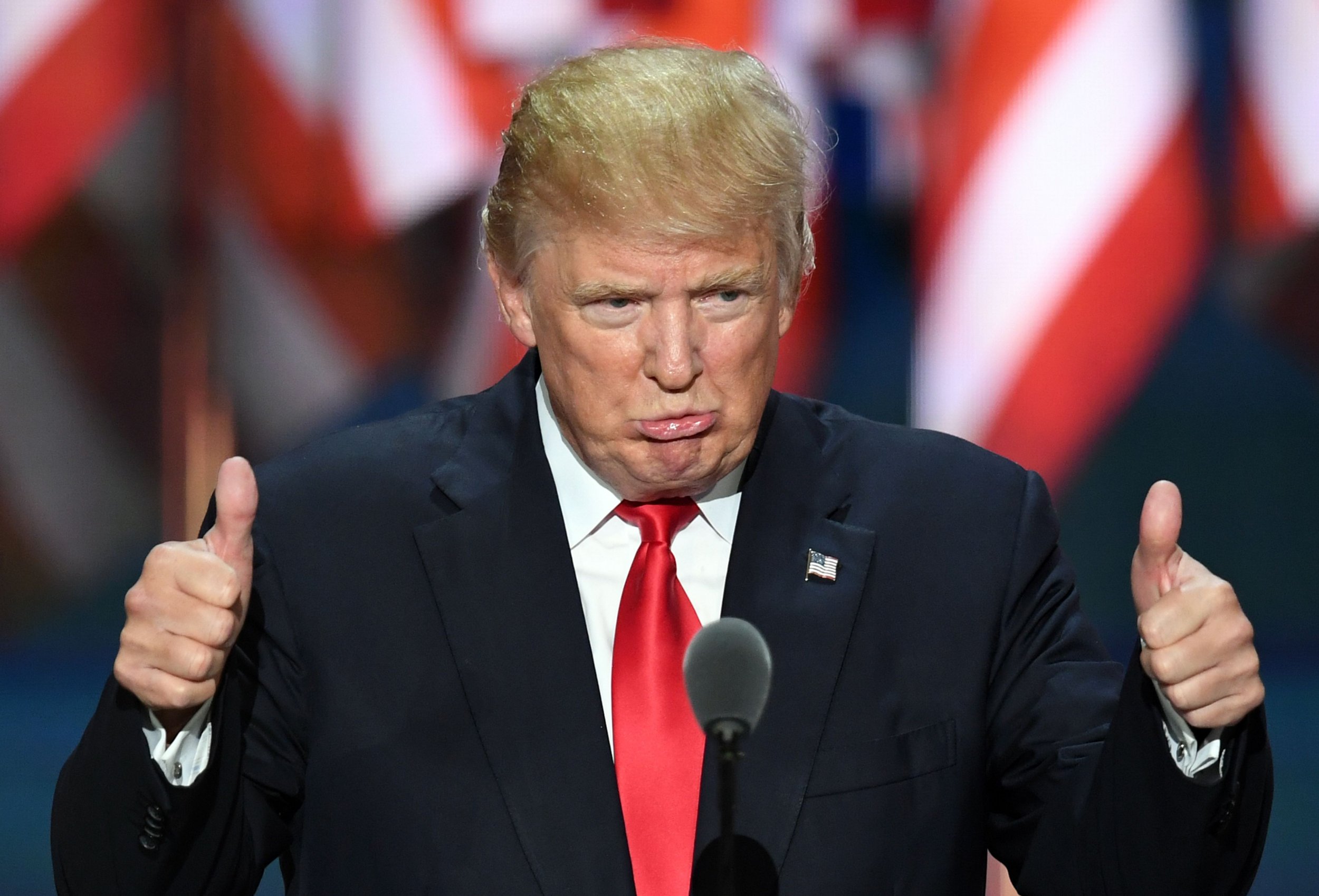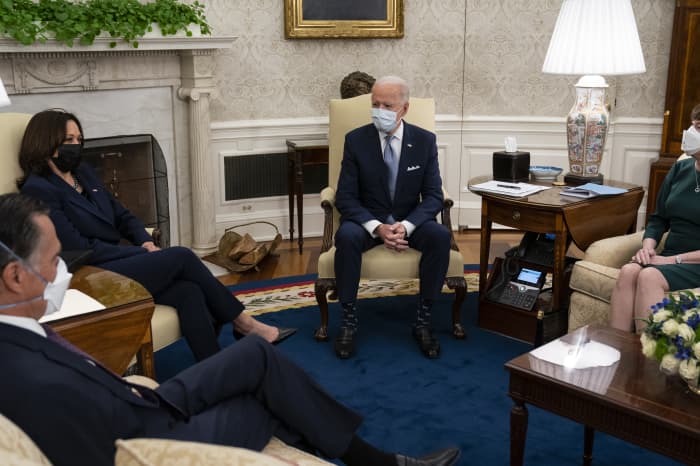Impact Of Trump's Remarks On US-Canada Relations During Canadian Election

Table of Contents
Keywords: Trump, US-Canada relations, Canadian election, bilateral trade, NAFTA, USMCA, immigration, Trump's impact on Canada, US foreign policy, Canada-US relations, election impact, trade disputes, border security.
The relationship between the United States and Canada is one of the world's most significant bilateral partnerships, deeply intertwined economically and politically. During the Canadian federal election, the shadow of Donald Trump's presidency loomed large, significantly impacting the campaign narrative and potentially influencing the outcome. Understanding this dynamic is crucial for comprehending the complexities of current Canada-US relations and predicting future interactions. This article examines the multifaceted impact of Trump's remarks and policies on US-Canada relations during this pivotal election period.
Economic Impacts: Navigating Trade Tensions Under Trump
Trump's presidency was marked by significant trade tensions, particularly regarding the renegotiation of NAFTA. This uncertainty had a profound impact on the Canadian election.
NAFTA Renegotiation and its Fallout
Trump's repeated threats to withdraw from NAFTA (renamed USMCA) created considerable anxiety among Canadian businesses. The uncertainty surrounding the future of this crucial trade agreement dominated the election cycle.
- Uncertainty among Canadian businesses: Businesses faced immense uncertainty regarding future trade flows and investment decisions.
- Campaign promises concerning trade deals: Political parties were forced to address the issue directly in their platforms, offering varying approaches to navigating the renegotiation.
- Voter anxieties regarding economic stability: Concerns about job losses and economic instability fueled by Trump's rhetoric played a significant role in shaping voter sentiment.
- Impact on specific sectors (e.g., agriculture, automotive): Sectors heavily reliant on US trade, such as agriculture and the automotive industry, were particularly vulnerable to the uncertainty, influencing voting patterns in affected regions.
Bilateral Trade Disputes
Beyond NAFTA, other trade disagreements between the US and Canada further complicated the election landscape.
- Examples of specific trade disputes: Disputes over lumber, dairy products, and softwood lumber tariffs created further economic friction.
- Canadian responses to Trump's tariffs: The Canadian government responded with retaliatory tariffs and diplomatic efforts to resolve the disputes.
- Public opinion on trade relations: Public opinion shifted, with increased concerns about the reliability of the US as a trading partner.
- Impact on Canadian industries: Canadian industries directly affected by trade disputes faced significant challenges, impacting employment and investment.
Immigration and Border Security: A Shifting Landscape
Trump's hardline stance on immigration significantly impacted the US-Canada relationship and influenced the Canadian election.
Trump's Immigration Policies and their Ripple Effect
Trump's immigration policies, including travel bans and the proposed border wall, sparked considerable debate in Canada.
- Public perception of Trump's policies in Canada: Many Canadians viewed Trump's policies as discriminatory and harmful to international relations.
- Impact on Canadian immigration policy debates: The election saw increased discussion of Canada's own immigration policies and its role as a potential refuge for those affected by US restrictions.
- The role of immigration in the election campaigns: Immigration became a key election issue, with parties highlighting their differing approaches to welcoming immigrants and refugees.
Increased Border Security Concerns
Increased border security measures implemented by the US administration also affected the election.
- Changes in border crossing procedures: Increased wait times and stricter screening procedures at the US-Canada border impacted cross-border communities.
- Public safety concerns: While security concerns were legitimate, the implementation and rhetoric surrounding them influenced public opinion.
- Impact on cross-border communities: Communities reliant on cross-border traffic faced economic and social disruptions.
- Election campaign promises regarding border security: Candidates addressed the issue, promising to balance security with the maintenance of smooth cross-border relations.
Political Fallout: Shifting Alliances and National Identity
Trump's actions had a significant impact on Canadian foreign policy and national identity.
Impact on Canadian Foreign Policy
Trump's unpredictable behaviour led Canada to reassess its foreign policy approach.
- Strengthening ties with other nations: Canada sought to diversify its relationships with other countries to lessen its reliance on the US.
- Diversification of trade partnerships: Efforts were made to secure new trade agreements with nations beyond North America.
- Impact on Canada's international standing: Canada's role on the world stage was affected by the unpredictability of its largest trading partner.
National Unity and Identity
Trump's criticisms of Canada fostered a sense of national unity and pride.
- Increased Canadian nationalism: Trump's rhetoric inadvertently strengthened Canadian national identity and fostered a sense of unity against perceived external threats.
- Reaction to Trump's criticism of Canada: Canadians largely rejected Trump's criticism and affirmed their own national values.
- Impact on Canadian political discourse: The election saw a heightened focus on Canadian sovereignty and the importance of maintaining a strong and independent foreign policy.
Conclusion
Trump's presidency significantly impacted US-Canada relations during the Canadian election. The economic uncertainty caused by NAFTA renegotiation and trade disputes, the anxieties surrounding his immigration policies, and the resulting shifts in Canadian foreign policy and national identity all played a role in shaping the election narrative. Understanding these interwoven factors is critical for appreciating the complexities of the bilateral relationship.
Call to Action: Learn more about the lasting impact of Trump's rhetoric on US-Canada relations and how it shaped the Canadian election by [link to relevant resources]. Further research into the intricacies of US-Canada relations is essential for navigating the ongoing challenges and opportunities presented by this vital partnership.

Featured Posts
-
 Festas Privadas De P Diddy Documentario Revela A Presenca De Trump Beyonce E Jay Z
Apr 30, 2025
Festas Privadas De P Diddy Documentario Revela A Presenca De Trump Beyonce E Jay Z
Apr 30, 2025 -
 Ru Pauls Drag Race Live Celebrates 1000 Shows With Global Livestream
Apr 30, 2025
Ru Pauls Drag Race Live Celebrates 1000 Shows With Global Livestream
Apr 30, 2025 -
 Ewdt Bakambw Msharkt Hasmt Fy Tsfyat Kas Alealm 2026 Amam Jnwb Alswdan Wmwrytanya
Apr 30, 2025
Ewdt Bakambw Msharkt Hasmt Fy Tsfyat Kas Alealm 2026 Amam Jnwb Alswdan Wmwrytanya
Apr 30, 2025 -
 44 Year Old Channing Tatum And 25 Year Old Inka Williams Enjoy Shopping Spree
Apr 30, 2025
44 Year Old Channing Tatum And 25 Year Old Inka Williams Enjoy Shopping Spree
Apr 30, 2025 -
 Channing Tatum Sparks Dating Rumors With Inka Williams
Apr 30, 2025
Channing Tatum Sparks Dating Rumors With Inka Williams
Apr 30, 2025
Latest Posts
-
 62 Miles Of Black Sea Coastline Closed Due To Russian Oil Spill
Apr 30, 2025
62 Miles Of Black Sea Coastline Closed Due To Russian Oil Spill
Apr 30, 2025 -
 Russia Shuts Down Black Sea Beaches After Significant Oil Spill
Apr 30, 2025
Russia Shuts Down Black Sea Beaches After Significant Oil Spill
Apr 30, 2025 -
 100 Days In Trumps 39 Approval And The Role Of Limited Travel
Apr 30, 2025
100 Days In Trumps 39 Approval And The Role Of Limited Travel
Apr 30, 2025 -
 Trumps 39 Approval A Deep Dive Into The First 100 Days And Travel
Apr 30, 2025
Trumps 39 Approval A Deep Dive Into The First 100 Days And Travel
Apr 30, 2025 -
 The Impact Of Travel On Trumps Early Presidency A 39 Approval Rating
Apr 30, 2025
The Impact Of Travel On Trumps Early Presidency A 39 Approval Rating
Apr 30, 2025
